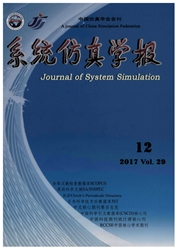

 中文摘要:
中文摘要:
针对机器人辅助患肢进行康复训练时患肢病情的变化对系统稳定性造成的影响,在传统阻抗控制方法基础上,提出了一种基于进化模糊神经网络的自适应阻抗控制方法。该方法采用能较为准确反映患肢病情特性的患肢机械阻抗参数作为控制器输入,根据在线辨识得到的机械阻抗参数,运用进化模糊神经网络对目标阻抗控制参数进行动态调整。在调整过程中,首先采用混合进化算法离线优化目标阻抗控制参数,然后再利用动态BP算法对目标阻抗控制参数在线作进一步地调整。分析和仿真结果表明,改进后的方法较传统阻抗控制方法更能有效地适应患肢病情的变化,且具有较好的平滑性和稳定性。
 英文摘要:
英文摘要:
Robot-aided rehabilitation system may be instable in the case when the patient's circumstances change,which make the rehabilitation training inefficient.The purpose of the study is to develop an adaptive impedance control strategy based on evolutionary fuzzy neural network.An on-line identification method was used to estimate impaired limb's mechanical impedance parameters which would be used as inputs of evolutionary fuzzy neural network impedance controller.By using evolutionary fuzzy neural network,desired impedance control parameters between rehabilitation robotic end-effector and upper-limb were regulated through on-line learning.The hybrid evolutionary algorithms were applied to offline optimize desired impedance control parameters,and then dynamic back-propagation (BP) algorithm was further used to adjust them on line.Analysis and simulation results indicate that the proposed algorithm is much more stable and smooth than traditional impedance control methods.
 同期刊论文项目
同期刊论文项目
 同项目期刊论文
同项目期刊论文
 期刊信息
期刊信息
